Everything you need to know about HPE
A brief guide to HPE, the platform-as-a-service IT specialist known for its storage, networking, and compute portfolios

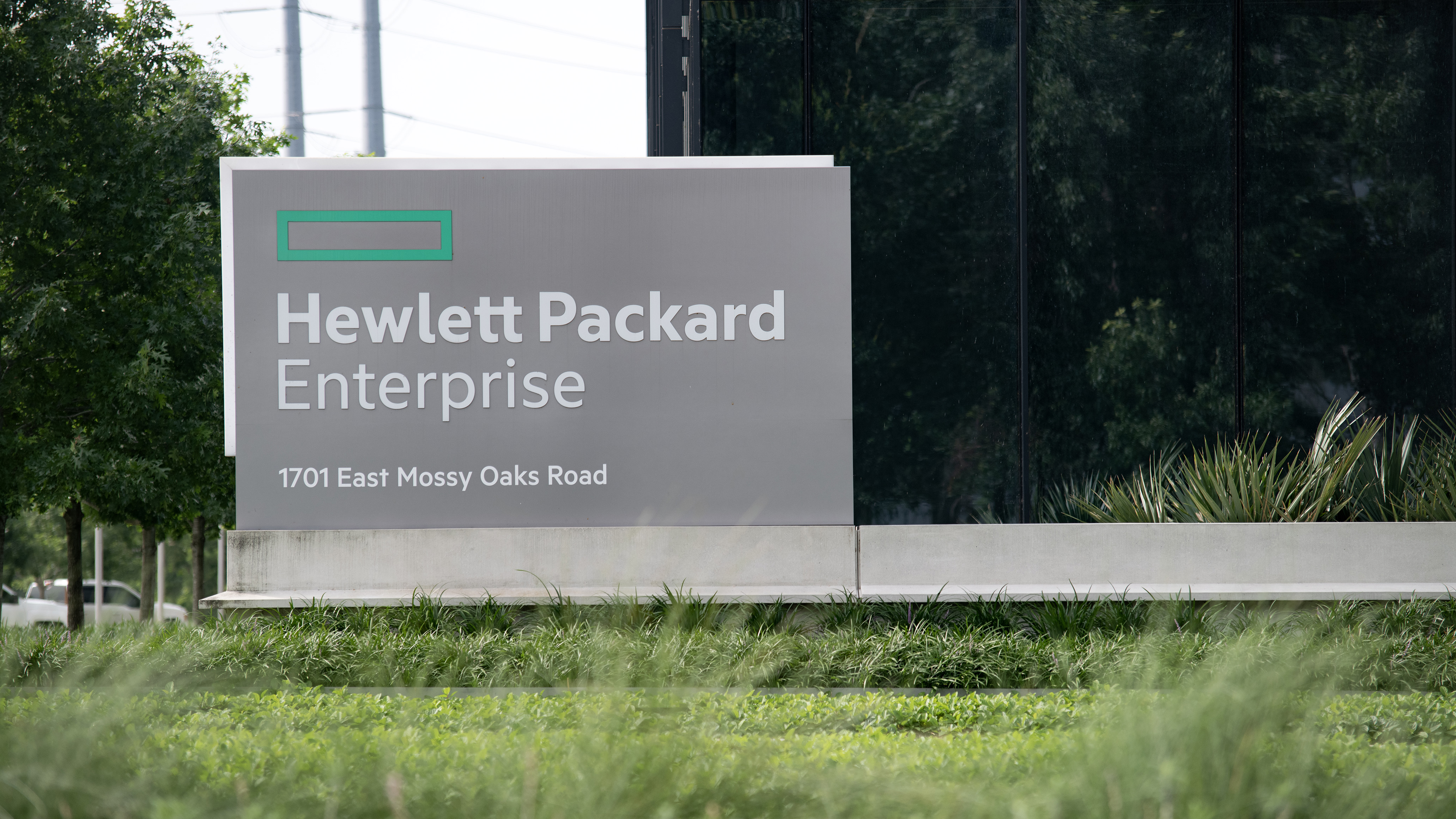
In any conversation about enterprise technology, HPE remains a major presence. Formed out of one of the most influential names in computing history, Hewlett Packard Enterprise is now focused entirely on helping businesses navigate digital transformation, hybrid cloud infrastructure, and AI adoption.
Founded in 2015 following the split of Hewlett-Packard Company, HPE has carved out a clear identity in the enterprise space. While HP Inc. handles printers and PCs, HPE delivers compute, networking, storage, and AI-native solutions for some of the world’s most demanding IT environments.
Today, HPE is doubling down on generative AI, hybrid cloud, and private 5G. It has launched comprehensive new services such as HPE Private Cloud AI, expanded its GreenLake as-a-service platform, and moved to acquire Juniper Networks in a deal that could significantly expand its role in AI-native networking.
Founded | 1 November, 2015, following the break-up of the IT giant Hewlett-Packard Company |
Current CEO | Antonio Neri |
HQ | Houston, Texas. |
Annual revenue |
A quick history of HPE
When Hewlett-Packard split into two independent entities in 2015, it marked the start of a new chapter for enterprise IT. Hewlett Packard Enterprise (HPE) emerged as the business-facing arm of the original company, focusing on servers, storage, networking, software, and services tailored for corporate and institutional clients. HP Inc., meanwhile, retained the consumer-focused PC and printing business.
Even before the official separation, HP had made a strategic acquisition that would shape HPE’s trajectory. In 2015, it bought Aruba Networks, a major player in wireless networking, providing HPE with a strong foothold in campus and edge networking solutions.
Over the years, HPE has continually repositioned itself to meet emerging enterprise demands. A pivotal part of this transformation was its investment in hybrid IT and high-performance computing (HPC), accelerated by acquisitions such as SGI and Cray. These moves positioned HPE as a key player in global supercomputing, with its systems powering top-ranking machines like Frontier and Lumi.
In March 2024, the company introduced an end-to-end, AI-native portfolio designed to support the full lifecycle of generative AI deployments, combining compute, storage, networking, and consulting. Then, in June 2024, it followed up with HPE Aruba Networking Enterprise Private 5G, offering organisations a unified solution for both Wi-Fi and private cellular networks.
Sign up today and you will receive a free copy of our Future Focus 2025 report - the leading guidance on AI, cybersecurity and other IT challenges as per 700+ senior executives
Under CEO Antonio Neri, who has led the company since 2018, HPE has remained committed to its mission to make data more accessible and actionable across hybrid environments. This vision is reflected in its continued investments in AI infrastructure, edge connectivity, and platform-as-a-service models.
Since its launch, HPE has consistently demonstrated strong financial growth. As of the second quarter of fiscal 2025 (ending April 30, 2025), HPE reported quarterly revenue of $7.6 billion, representing a 6% year-over-year increase in actual dollars (7% in constant currency). This marks the fifth consecutive quarter of year-over-year revenue growth, with all major product segments Server, Intelligent Edge, and Hybrid Cloud, contributing to the expansion. While specific figures on the tripling of enterprise AI customers are not reiterated in the most recent reporting, HPE continues to see strong growth in its AI customer base and maintains a significant pipeline, with a $3.2 billion AI backlog and ongoing enterprise adoption.
What does HPE sell?
Spanning from edge to cloud, HPE's diverse product portfolio aims to help businesses transform their IT and accelerate digital initiatives tailored to industry needs.
A core focus for HPE is its compute solutions, including the HPE ProLiant Servers engineered for hybrid environments to unlock more data value and drive AI outcomes. HPE is recognized as a top-five global server provider, consistently competing with Dell, Lenovo, and Supermicro in the enterprise IT hardware market. According to market data as of Q1 2025, HPE holds approximately 7% of the broader enterprise IT market share, which includes servers, storage, and networking. The company’s server business remains a primary growth driver, with strong demand for AI infrastructure and continued innovation in next-generation server platforms.
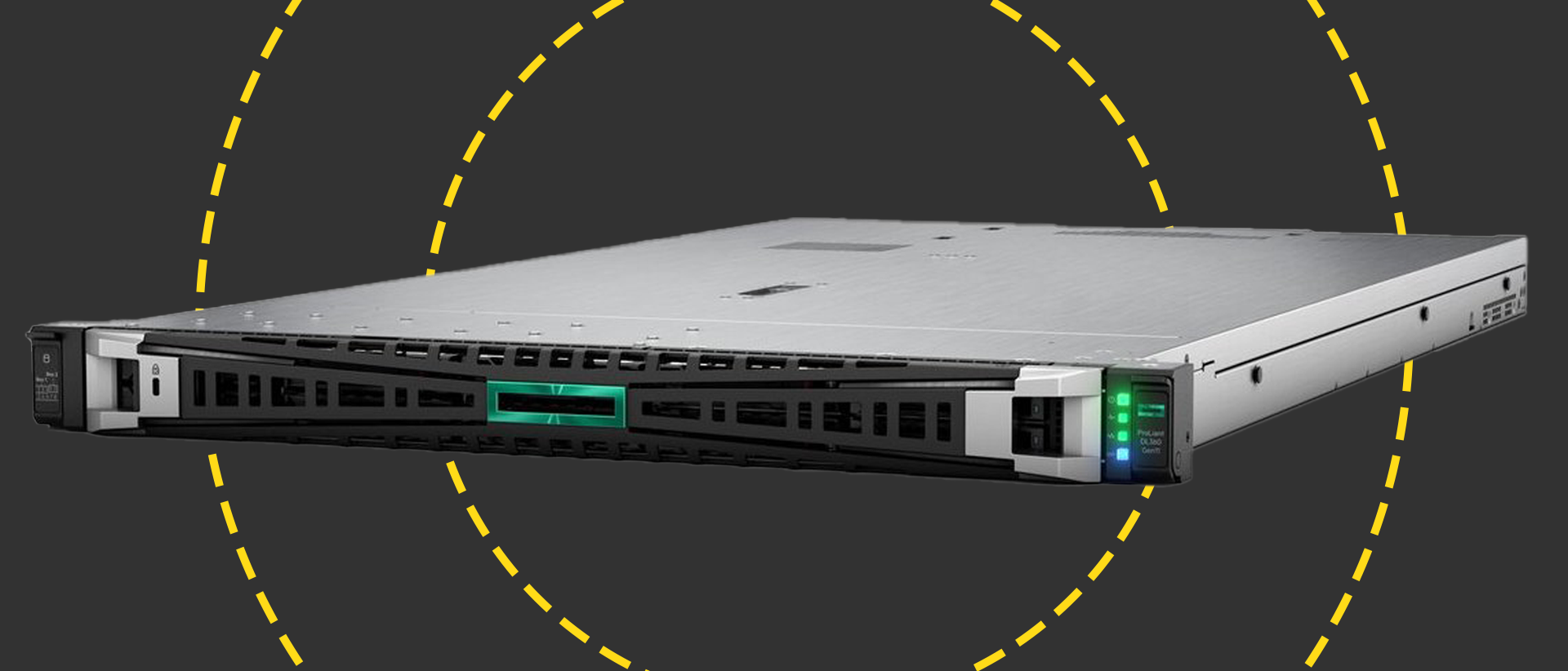
For storage, HPE provides solutions optimized for both traditional and cloud-native workloads to streamline operations. HPE has around a 10% market share of the global storage market.
On the networking side, HPE delivers wired and wireless products designed to accelerate edge workloads while safeguarding data through proven zero trust approaches. HPE's acquisition of Juniper Networks is expected to double the size of its networking business, where it competes globally with companies such as Cisco.
HPE also offers businesses its high-performance computing (HPC) portfolio, offering scale-out and scale-up capabilities for public cloud, on premise, and hybrid environments. It aims to meet the requirements and business needs of today's enterprises through purpose-built software, storage, and workloads. HPE’s HPC marries the cloud and supercomputing, allowing businesses to access to advanced and high-performance HPC systems while getting access to metered and elastic cloud services.
Since it became a company in its own right, HPE has worked hard to establish itself as the go-to partner for high-performance computing (HPC). Among the ten most powerful supercomputers in the world, as tracked by the TOP500 list, HPE is credited with building seven of the top ten systems, demonstrating its leadership in the field.
The current number one system, El Capitan, is an HPE Cray EX255a supercomputer at Lawrence Livermore National Laboratory. Frontier, previously the most powerful supercomputer and the first to break the exascale barrier, was also built by HPE (Cray EX235a), now ranked second. Aurora (HPE Cray EX) is third, HPC6 (HPE Cray EX235a) is sixth, Alps (HPE Cray EX254n) is eighth, and LUMI (HPE Cray EX235a) is ninth. These rankings highlight HPE’s dominance in global supercomputing and its continued delivery of advanced HPC solutions.
Organizations that leverage HPE’s HPC infrastructure can use it to create and improve data analytics, optimize business outcomes, and power AI/ML use cases. With HPE HPC, organizations can assemble HPE's infrastructure building block components, high-speed and high-capacity storage, dense computing resources, software, and networking to run and manage their own HPC clusters.
At Nvidia’s GTC 2025 conference, HPE and Nvidia unveiled new enterprise AI solutions under the Nvidia AI Computing by HPE initiative. These include enhanced HPE Private Cloud AI offerings, new developer systems, and deeper integration of Nvidia’s AI computing, networking, and software with HPE’s storage, compute, and GreenLake cloud services. The solutions are designed to accelerate time to value for generative, agentic, and physical AI models, supporting training, tuning, and inferencing with improved performance, security, and power efficiency.
One such service is HPE Private Cloud AI, a cloud-based platform for efficiently creating and rolling out generative AI tools and models rooted in one’s own data. Through this and other products, along with its Nvidia partnership, HPE has shown its focus on generative AI.
Finally, HPE rounds out its offerings with software and services like HPE GreenLake for Compute Ops Management, which monitors distributed environments, and HPE Integrated Lights Out, which provides seamless, secure server management from anywhere.
HPE GreenLake is an infrastructure as a service (IaaS), hybrid-cloud platform that enables customers to use IT resources, compute, storage, networking, security, containers, and AI/ML services on a pay-per-use basis, while keeping infrastructure on-premises, at the edge, or across colocation and public cloud environments.
Launched in 2018, GreenLake now supports a unified console for cost management, compliance, cloud orchestration, and virtualization. It offers customers a set of public cloud-like services on more traditional on-premises-type setups, with both the hardware and software provided in a subscription mode. Its capabilities include cost management, cloud management, and compliance tools, all accessible through a central console, with tools and services including storage, computing, networking, security, and data protection.
HPE positions GreenLake as a unified solution allowing companies to enjoy a relatively simple and risk-free approach to their digital transformation efforts.
In summary, HPE provides a broad range of compute, storage, networking, software, and service offerings designed to support hybrid IT environments and digital transformation initiatives.
HPE's mergers and acquisitions
HPE has a robust history of mergers and acquisitions, which have played a significant role in shaping the company’s strategy, filling critical portfolio gaps, and enhancing its competitive positioning.
Since its launch in 2015, HPE has made strategic acquisitions to accelerate its transformation into an edge-to-cloud platform-as-a-service company. Its aforementioned absorption of Aruba’s networking catalog and staff helped it get off the ground with speed.
In 2016, HPE acquired HPC veteran SGI for $275 million with the goal of improving its big data analytics offerings and helping HPE deliver AI solutions using its data centers in the long term.
This drive for data readiness continued into 2017, first with HPE’s $650 million acquisition of SimpliVity and less than two months later with its $1 billion deal to absorb Nimble Storage, the flash storage specialist
Another major acquisition for HPE came in 2019, when the firm bought the supercomputing giant Cray for $1.3 billion. HPE has seen major benefits from acquiring Cray, as it built on its strong HPC credentials, first bolstered when it took on SGI.
In 2020, it acquired Silver Peak, a software-defined WAN provider, to boost its edge-to-cloud vision and expertise in cloud-native security and zero-trust networking.
The following year saw multiple critical purchases, including Zerto for cloud data protection and management, Determined AI to speed up open source AI model training, and CloudPhysics for infrastructure monitoring insights.
In 2023, HPE made several key acquisitions. In the first quarter of 2023, HPE acquired OpsRamp, a company specializing in IT Operations Management Software. This was followed by the acquisition of Axis Security, a company that offers a Security Services Edge (SSE) Platform. Shortly after, HPE acquired a company specializing in private cellular technology. In the same quarter, HPE also acquired an open-sourced reproducible AI software.
In January 2024, HPE made a $14 billion bid for Juniper Networks. The acquisition faced little resistance in the EU and after a short investigation by the UK’s Competition and Markets Authority (CMA) was also cleared by the regulator. It will undergo final regulatory approval and is expected to clear by the end of 2024 or early 2025.
However, the acquisition encountered significant hurdles in the US, where the Department of Justice (DOJ) filed a lawsuit in January 2025 to block the transaction, citing concerns over reduced competition in the enterprise networking market.
This acquisition is expected to significantly expand HPE’s presence in the enterprise networking market, potentially doubling the size of its networking business. By integrating Juniper’s expertise, especially its Mist AI service, HPE aims to deliver advanced, AI-driven networking solutions that address the growing demand for secure, unified technology platforms capable of connecting, protecting, and analyzing data from edge to cloud. According to HPE, “the explosion of AI and hybrid cloud-driven business is accelerating demand for secure, unified technology solutions that connect, protect, and analyze companies’ data from edge to cloud.”
Pending the outcome of ongoing legal proceedings with the US Department of Justice, which has raised concerns about reduced competition in the enterprise networking sector, HPE and Juniper remain committed to completing the transaction. If the deal closes, Juniper CEO Rami Rahim is set to lead the combined HPE networking business, reporting to HPE CEO Antonio Neri. The complementary strengths of both companies would enable HPE to offer next-generation, AI-native networking to enterprises. HPE has also stated it is actively exploring alternative strategic options should the acquisition ultimately be blocked.
What's it like doing business with HPE?
HPE delivers edge-to-cloud, platform-as-a-service solutions, complemented by its globally recognized high-performance computing (HPC) and AI infrastructure. Partnerships are central to HPE’s go-to-market strategy, with a robust ecosystem designed to empower both customers and partners to achieve their business and technology goals.
RELATED RESOURCE

Improve data quality, patient safety, and staff satisfaction
DOWNLOAD NOW
HPE’s partners benefit from a wide range of programs and services, including HPE Partner Ready and HPE Partner Ready Vantag,e that provide enablement, tools, and resources to manage the customer lifecycle and accelerate as-a-service business outcomes. In 2025, HPE maintained its strong incentive structure, with products like HPE Alletra MP, HPE Private Cloud AI, and HPE VM Essentials offering the highest compensation multipliers for partners. The company is working toward a unified global partner program by Fiscal Year 2026, aiming to standardize and simplify incentives for partners across all regions.
At the 2025 Partner Growth Summit held as part of HPE Discover in Las Vegas, HPE showcased its latest innovations and reinforced its commitment to channel-driven growth, especially in AI and hybrid cloud. HPE’s AI channel strategy, co-developed with NVIDIA, enables partners to support the full AI lifecycle, from development to deployment, and is already driving real-world use cases for generative AI. The launch of HPE Private Cloud AI has been met with strong partner enthusiasm, with early projects demonstrating significant productivity gains for customers.
HPE’s ongoing investments focus on maximizing the revenue opportunities presented by AI, while providing the infrastructure and support partners needed to deliver advanced AI services. The company’s competency framework has expanded to include new areas such as HPE Solutions for Sustainability, and upcoming competencies in AI and Sovereign Cloud will further empower partners to stay ahead of industry trends.
For customers and partners alike, HPE offers a comprehensive ecosystem of support and capabilities to manage and leverage data and applications across increasingly complex IT environments. HPE views its partnerships as essential to realizing its platform-as-a-service vision and driving digital transformation outcomes for enterprises.

Jane McCallion is Managing Editor of ITPro and ChannelPro, specializing in data centers, enterprise IT infrastructure, and cybersecurity. Before becoming Managing Editor, she held the role of Deputy Editor and, prior to that, Features Editor, managing a pool of freelance and internal writers, while continuing to specialize in enterprise IT infrastructure, and business strategy.
Prior to joining ITPro, Jane was a freelance business journalist writing as both Jane McCallion and Jane Bordenave for titles such as European CEO, World Finance, and Business Excellence Magazine.
-
 What is Microsoft Maia?
What is Microsoft Maia?Explainer Microsoft's in-house chip is planned to a core aspect of Microsoft Copilot and future Azure AI offerings
-
 If Satya Nadella wants us to take AI seriously, let’s forget about mass adoption and start with a return on investment for those already using it
If Satya Nadella wants us to take AI seriously, let’s forget about mass adoption and start with a return on investment for those already using itOpinion If Satya Nadella wants us to take AI seriously, let's start with ROI for businesses
-
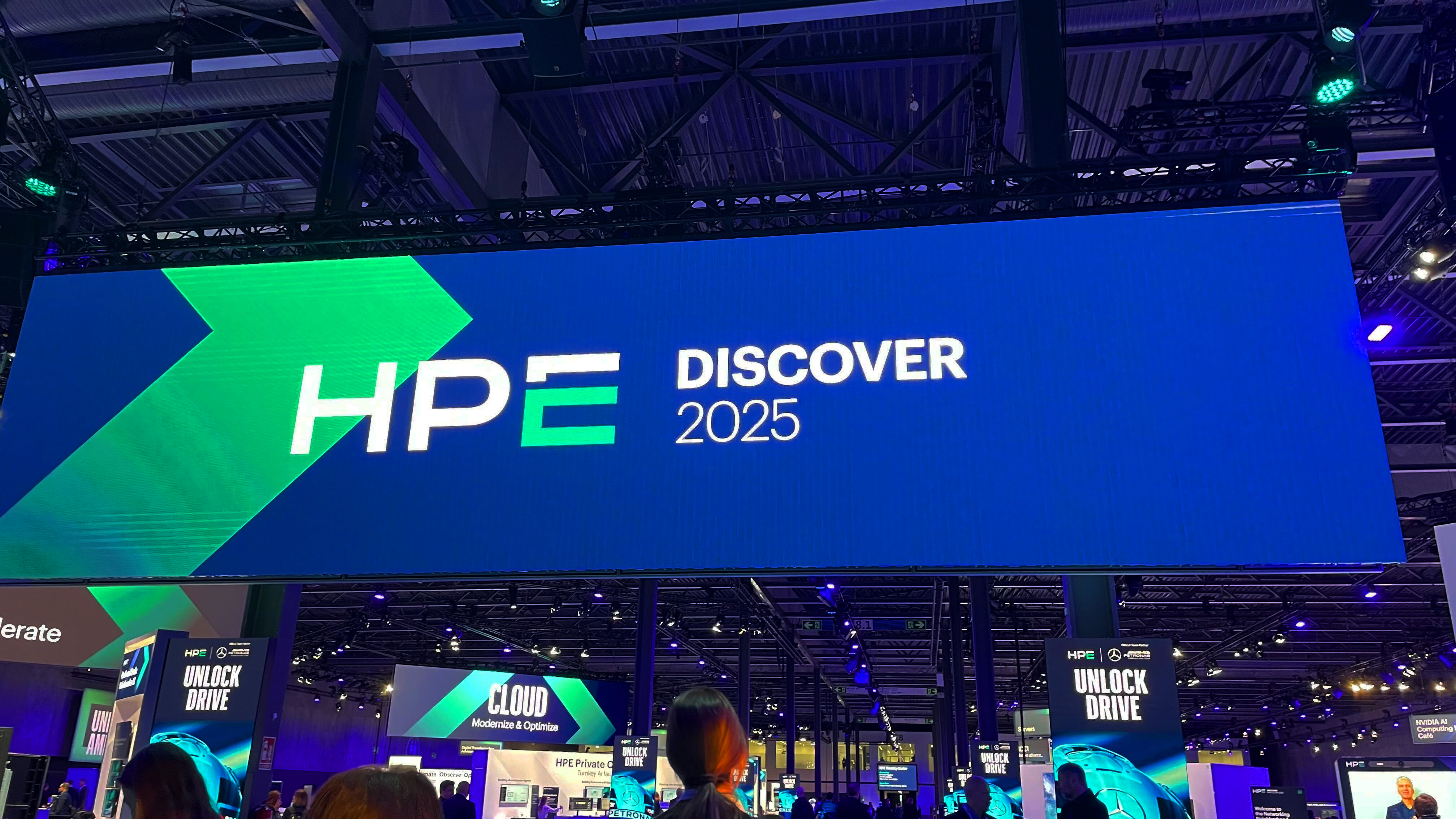 HPE says unified channel strategy won't force Juniper partners to generalize
HPE says unified channel strategy won't force Juniper partners to generalizeNews Does the company embrace specialists or want a full portfolio push? The answer, it seems, is both
-
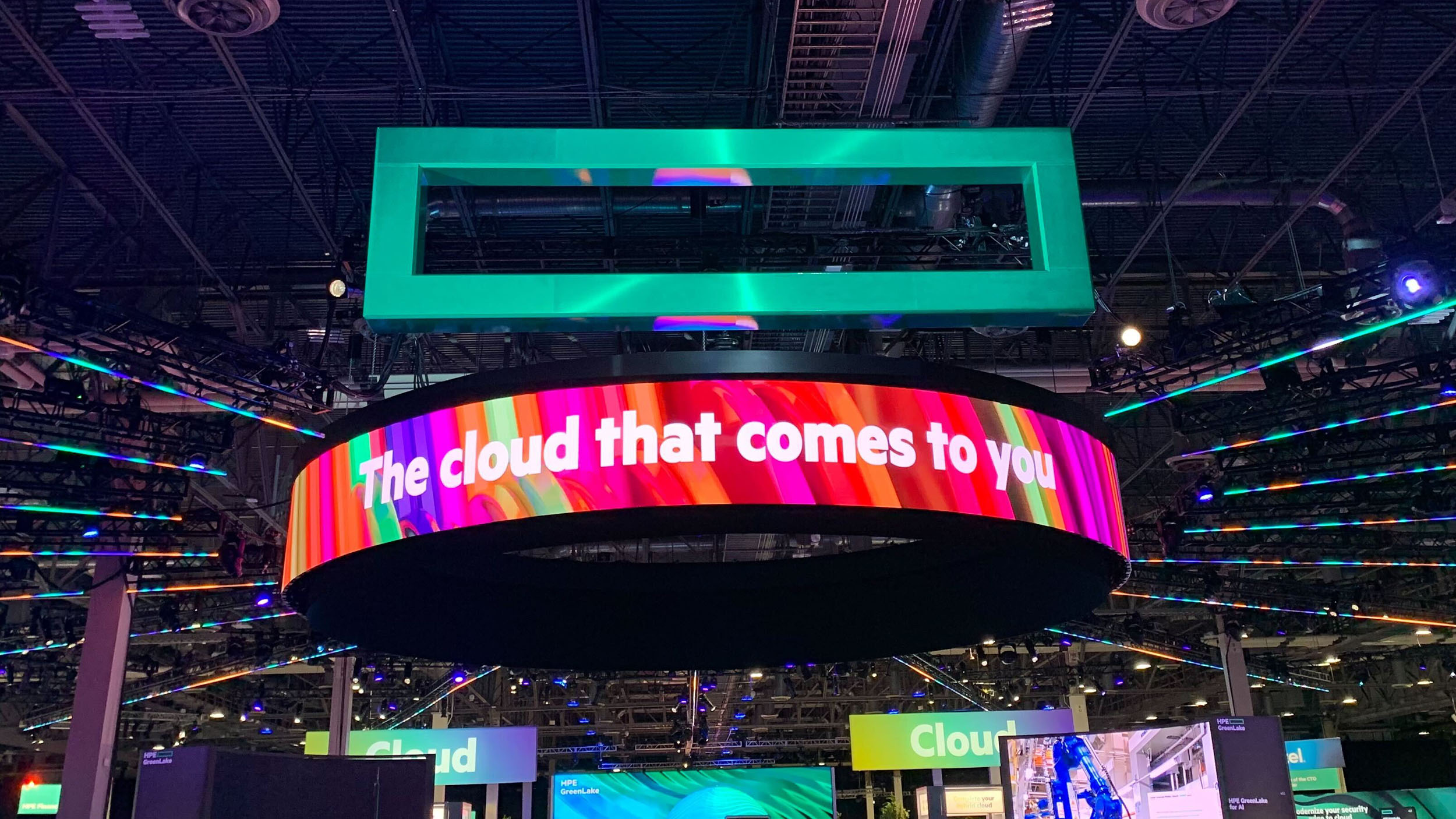 Three things I expect to see at HPE Discover Barcelona 2025 (and two I don’t)
Three things I expect to see at HPE Discover Barcelona 2025 (and two I don’t)Analysis With the conference kicking off at the Fira Barcelona next week, here are some things to look forward to
-
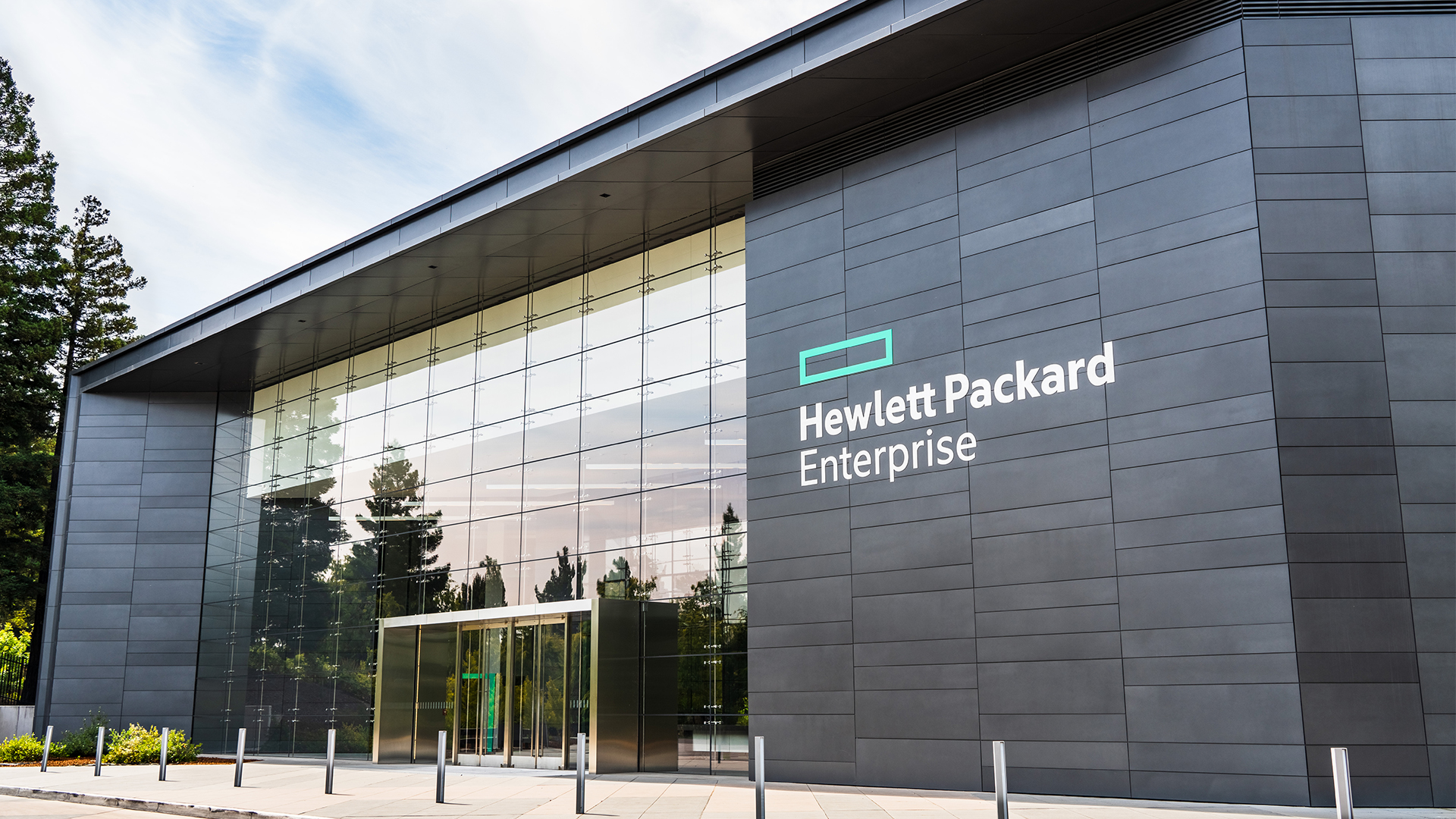 HPE launches first phase of new-look Partner Ready Vantage program
HPE launches first phase of new-look Partner Ready Vantage programNews The IT giant’s freshly unified channel initiative combines its legacy programs into a single framework
-
 HPE names Phil Mottram as new global sales chief
HPE names Phil Mottram as new global sales chiefNews Mottram succeeds HPE veteran Heiko Meyer who is retiring after 38 years with the tech giant
-
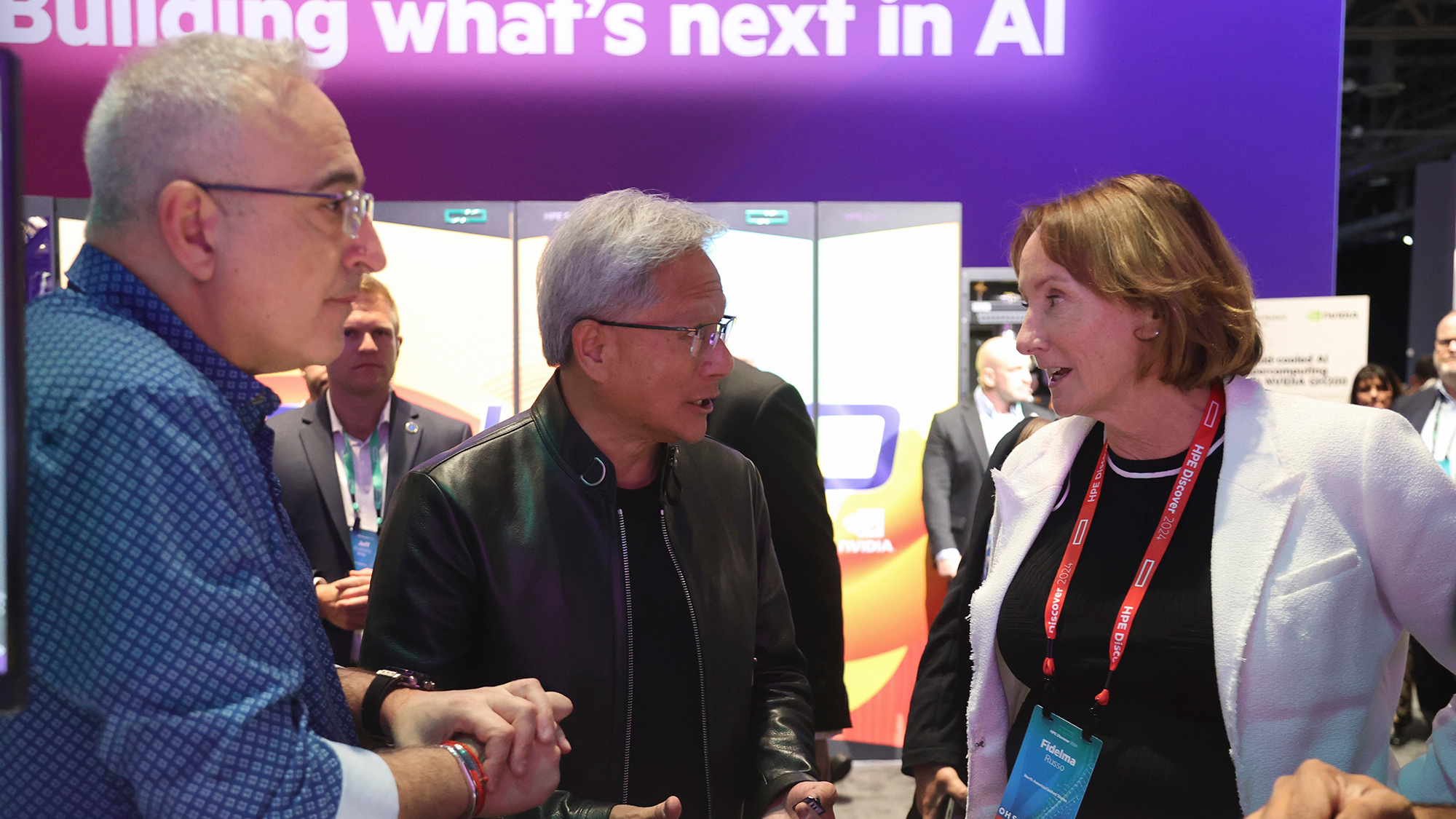 Who is Fidelma Russo?
Who is Fidelma Russo?Learn more about HPE's CTO and leader of GreenLake's success
-
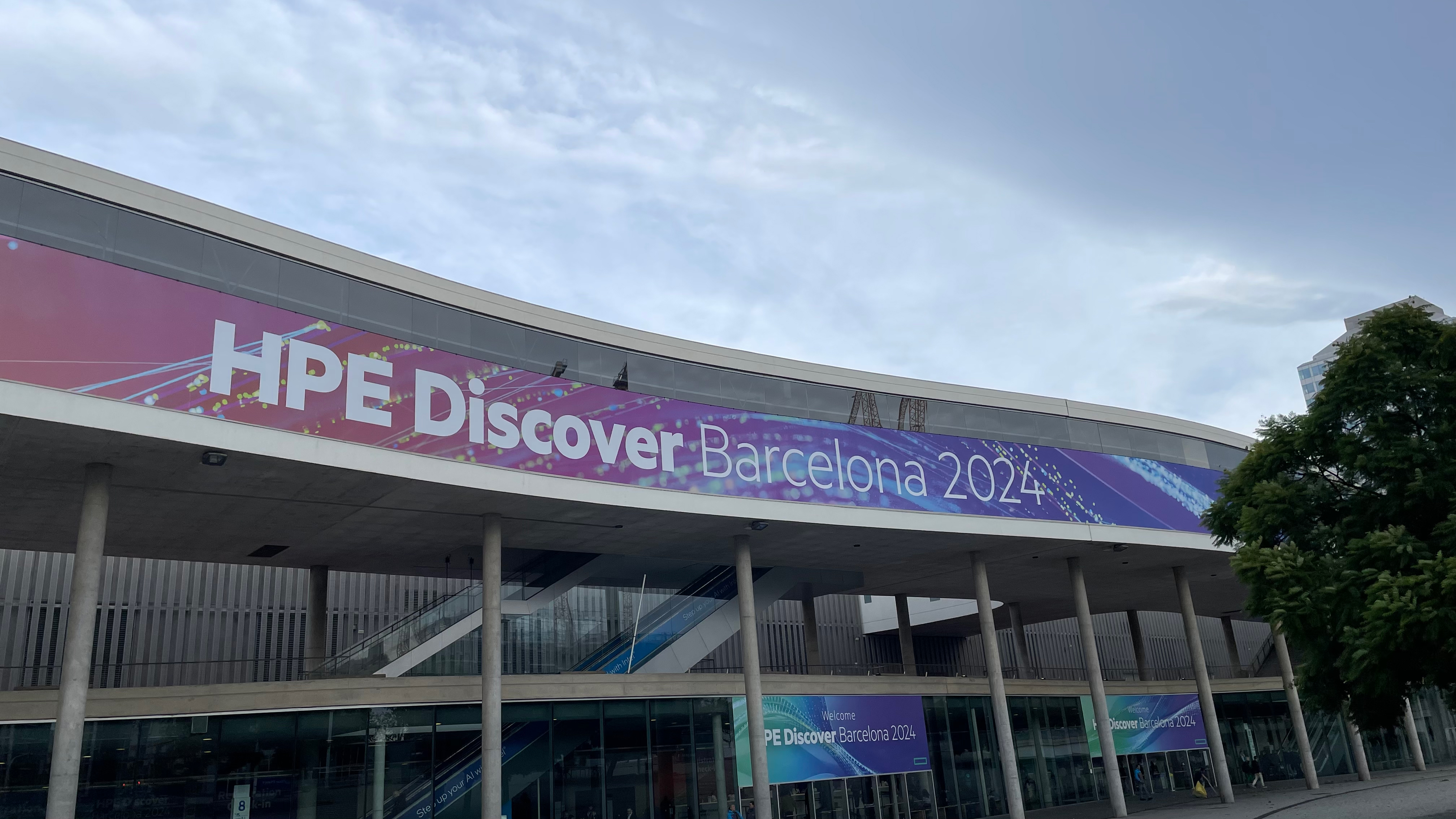 Steady progress and partner potential at HPE Discover Barcelona 2024
Steady progress and partner potential at HPE Discover Barcelona 2024Analysis With few product announcements, HPE's annual Europe event instead laid the groundwork for 2025
-
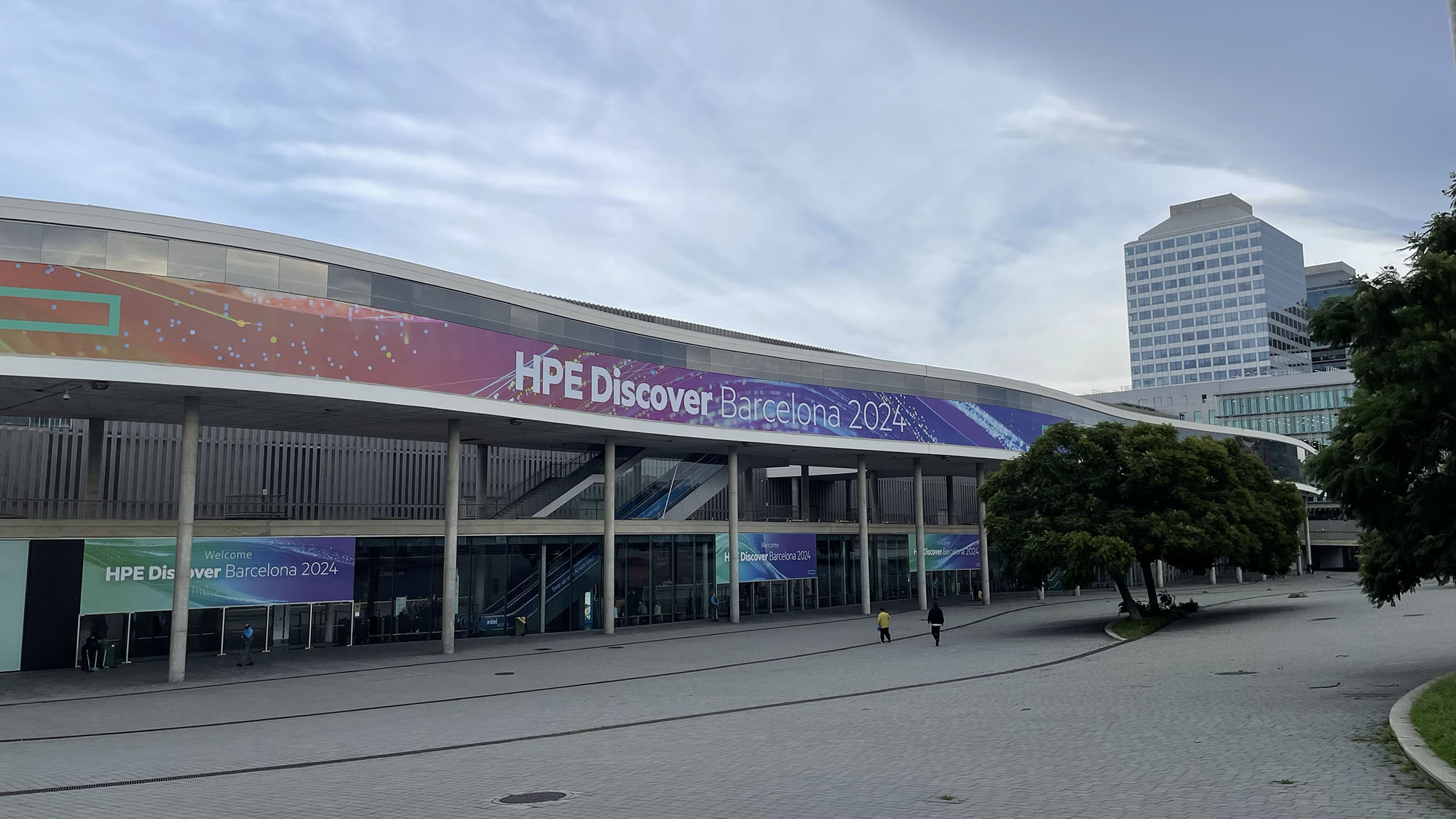 HPE launches exclusive sovereign cloud offering for the channel
HPE launches exclusive sovereign cloud offering for the channelPartners will need HPE Sovereignty competency before they can start selling
-
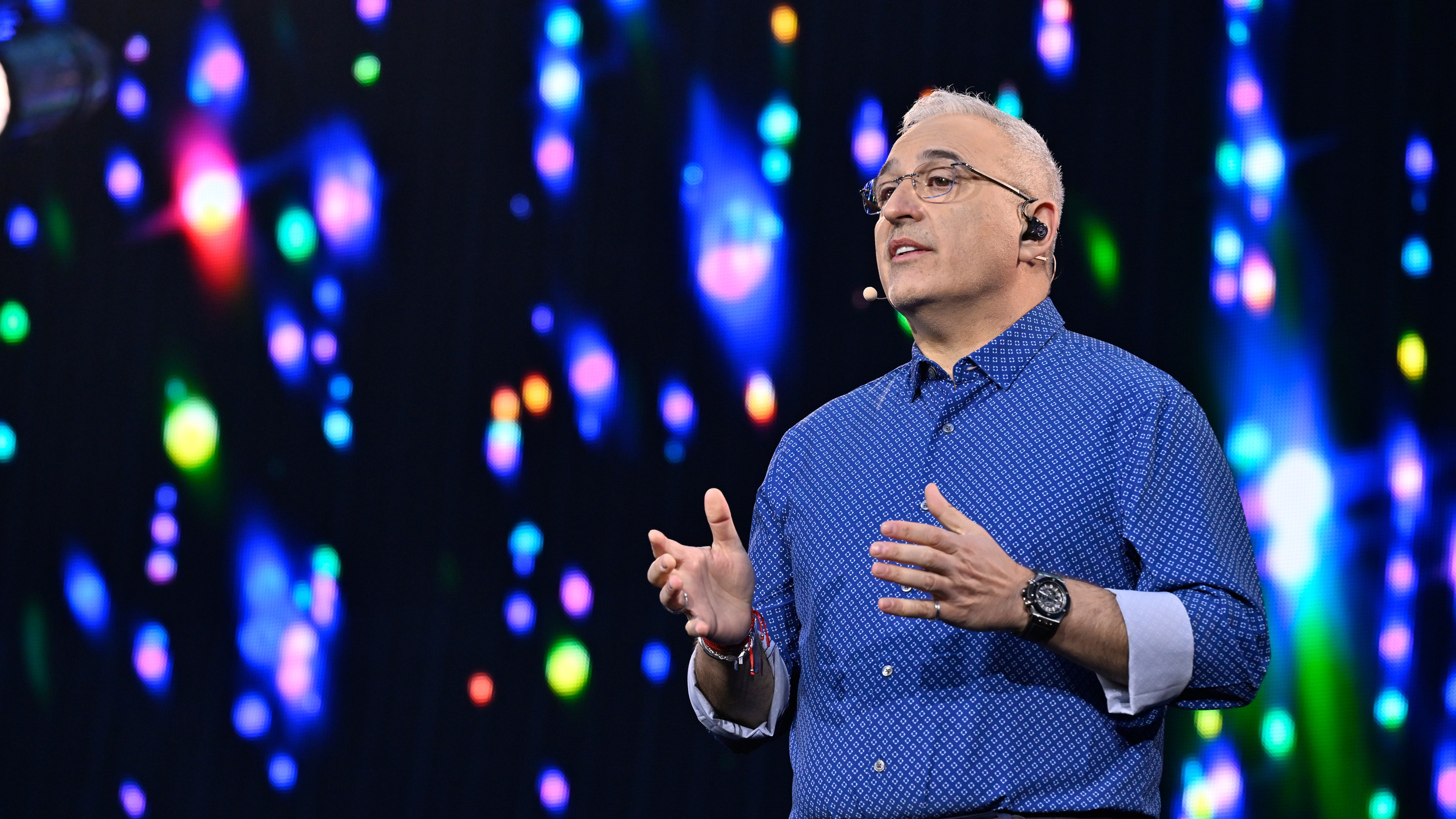 HPE Discover Barcelona 2024: All the news and updates live
HPE Discover Barcelona 2024: All the news and updates liveLive coverage of the keynote at HPE Discover Barcelona